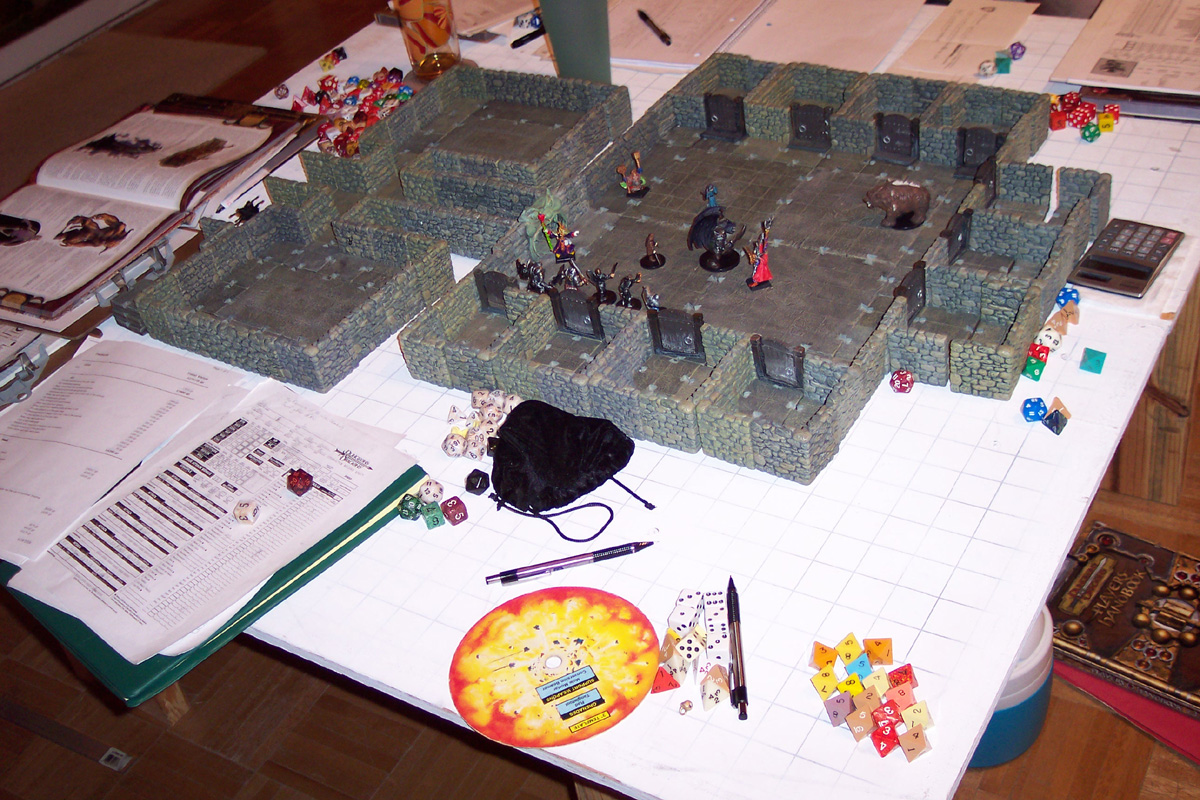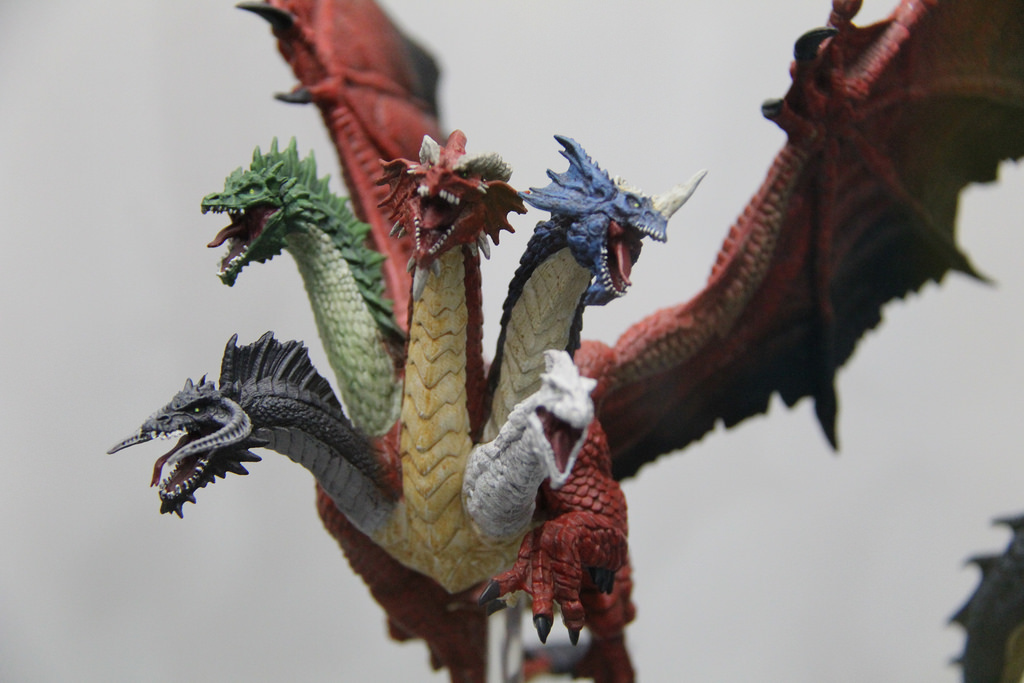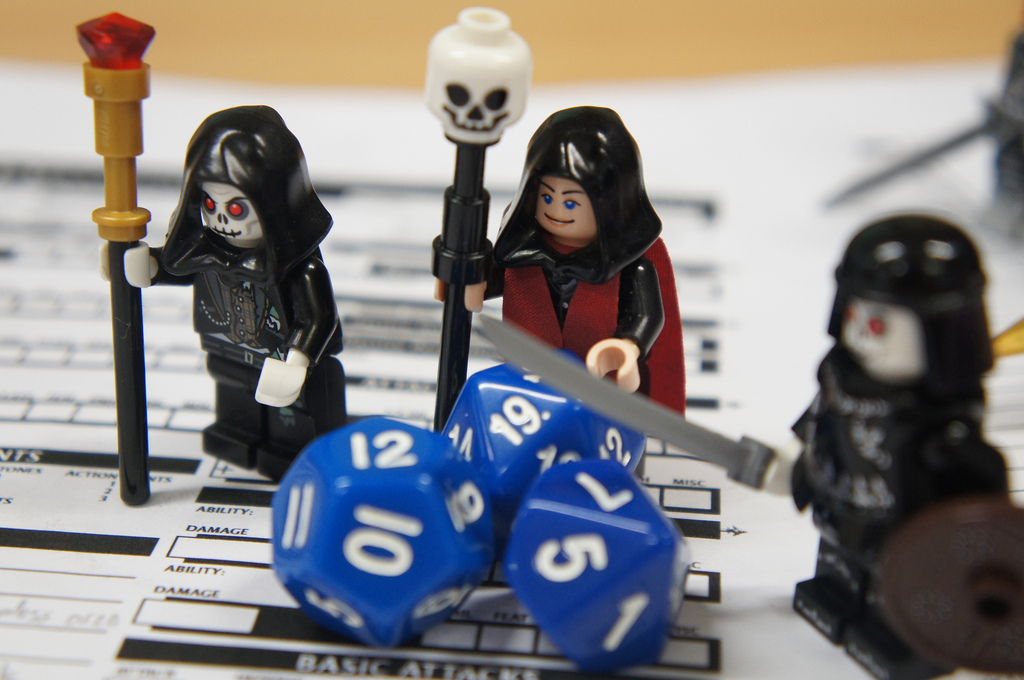Tabletop RPGs are something that have seen rather a huge rise in popularity lately, with people becoming more curious about how to join in with a form of gaming that they may have never tried before.
Tabletop roleplaying games are different than a lot of other games you might play in the sense that a good chunk of the game’s narrative is up to you as a player, even if you aren’t the Game Master. Whilst you might not always be able to control your dice rolls or stop your head from being bitten off by an angry Kobold, the one thing you do have control over is your character, and their personality. If you’re new to roleplaying, you can feel a bit awkward about playing your character(s) as anything more than a mere game piece, a lifeless pawn in your grid paper whose only purpose is to win you as much gold as possible. Whilst there’s nothing inherently wrong with taking the RP out of RPGs, new players might be interested in creating their own lore, but also may not know where to begin.
Here are a few of our top tips for fleshing out your own characters for your next gaming night:
avoid cliches and stereotypes

This is a concept that people might argue against, but as a general rule, I’d say it’s better to avoid stereotypes and cliches when creating your own tabletop RPG characters. When I say cliches and stereotypes, I’m thinking of things like creating a farm boy character who finds out he’s the “chosen one” of his village, or creating a rogue character who just wants to steal and hoard gold and do nothing else in life. Basically, all the Fantasy tropes you’ve read or seen countless times before usually make for fairly boring and predictable RPG characters. Of course, none of these character tropes are inherently bad in their own right (and you can tell some amazing stories with oft-played character roles), but it’s often far more satisfying to go against stereotypes to create more unique creations for your own tabletop games. Perhaps you could create a huge great bulky Orc of a character who really wants to settle down and open up a ye olde cupcake shoppe? Or a cunning thief who steals from dungeons so that he can give money to the orphanage he grew up in? When you start thinking against stereotypes, you’ll often find that ideas start “branching” off from one another.
Think about making your characters diverse, too. I’m not here to tell you that all your characters can’t be straight white guys: it’s your game, and you can choose to be whomever and whatever you’d like. But if you have the opportunity, think about creating people who aren’t like you, and telling stories that you haven’t read or watched before. Read Fantasy works by authors of colour, watch films where women are the protagonists…it can help to broaden your horizons about what kind of stories you can create, and will help to spark ideas outside of the ordinary.
unspoken stories

Whilst you’ll probably get a chance to introduce yourself and your character at your first gaming session, you don’t need to reveal everything about your character straight away. You can keep things hidden and reveal details when it makes sense as part of the story. The great thing about this is that you’ll have time between gaming sessions to think more about your character, and to add to their lore. You can think about things like their family, their childhood, where they grew up, what jobs they’ve had, how skilled of a fighter they are, the places they’ve lived…all of these kinds of titbits of knowledge will help flesh your character out into something more interesting than a game piece upon a map.
Their backstories don’t always have to be tragic, traumatic events either, even though most people think they have to lean this way so that they can have a “dramatic” reveal: you could keep happier information from the other players and reveal it at appropriate moments. Perhaps your character is expecting a child? Maybe they have an unexpected skill from an old job? Or maybe they’re secretly the child of that one author your Paladin is obsessed with? You can conceal lots of information from your other players, and it doesn’t always have to be something sad.
It’s a good idea to check with your DM/GM if you do want to reveal something earth-shattering though: they may have other plans and might need to rework some of their own stories or come up with some kind of compromise for you and your character.
react and rethink

Improvisation is an incredibly difficult thing to become skilled at, but your characters and games will become far more interesting if you become accustomed to learning how to react to the game’s events as they unfold. For some people, this might come naturally, but other people can struggle with coming up with character reactions on the spot.
Some things to think about whilst trying to react to a situation unfolding or a new piece of information being revealed are:
- How does this event/information make my character feel?
- What action(s) will they take now that this has happened?
- How do the other character(s) feel? Will my character attempt to talk with them, or ignore their reactions?
- Do I know the full story? Can I ask my DM/GM for more information?
The more you roleplay and improvise in your tabletop sessions, the more accustomed to it you’ll become and–like everything else in life–practice makes perfect!
have fun!

Your games don’t have to be laugh-a-minute fun fests where you take nothing seriously, but you should remember that you are playing a game, after all! Even when things are dramatic and serious in your games, you should always being enjoying yourself, even if that enjoyment is coming from plotting out precise battle strategies as opposed to making Tiefling fart jokes.
If you find you’re not enjoying yourself–perhaps you’re finding the game a little boring, or another player is bothering you–talk to your GM/DM. A good Game Master won’t be offended by your suggestions or concerns, and will do what they can to help you out. As long as you’re polite and constructive, you should be able to work together to ensure you’re enjoying your games as much as you possibly can. After all, it’s your character and your creation: you should be able to play them in a way that makes you happy.
Do you have any tips for fleshing out tabletop RPG characters? Let us know in the comments below!
Some of the coverage you find on Cultured Vultures contains affiliate links, which provide us with small commissions based on purchases made from visiting our site.

